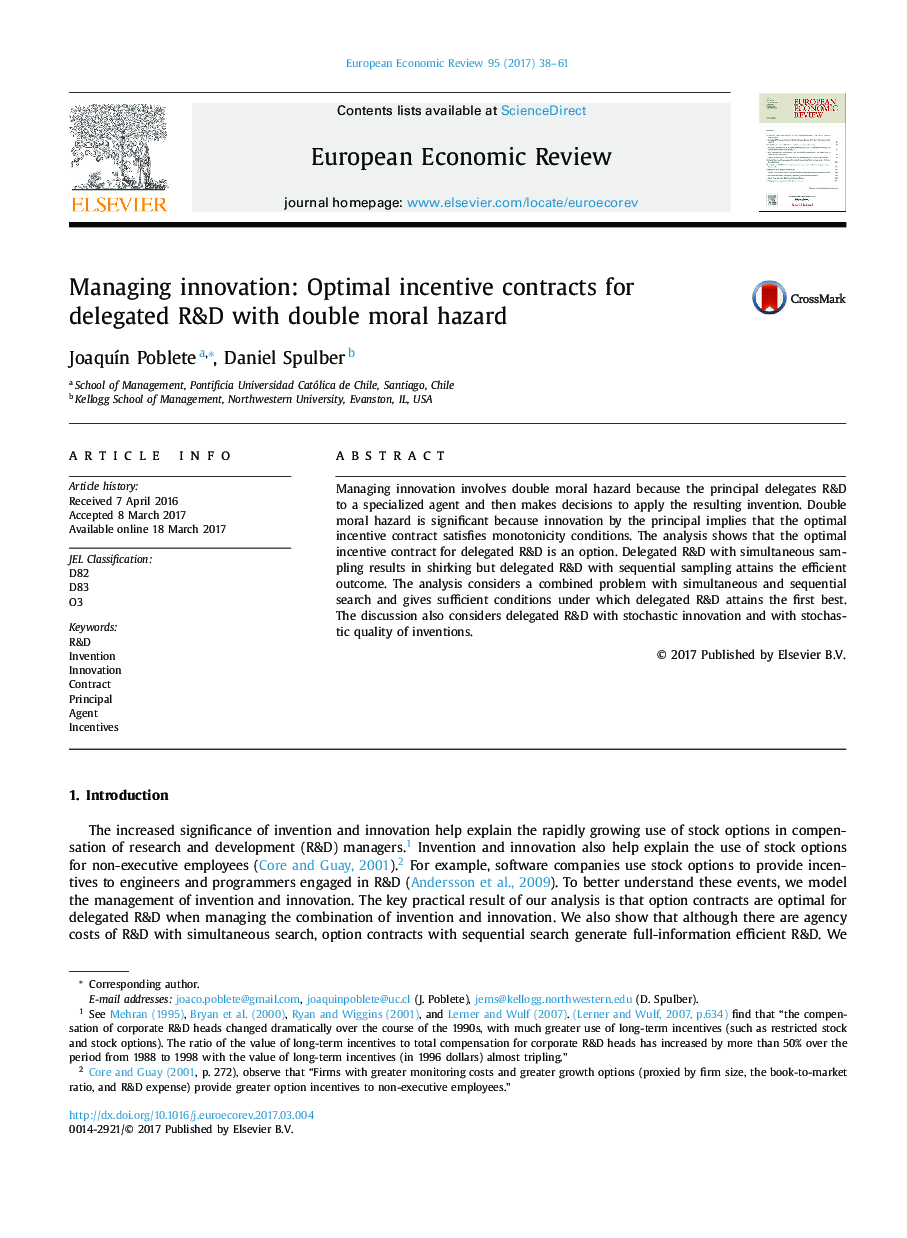| Article ID | Journal | Published Year | Pages | File Type |
|---|---|---|---|---|
| 5066338 | European Economic Review | 2017 | 24 Pages |
Managing innovation involves double moral hazard because the principal delegates R&D to a specialized agent and then makes decisions to apply the resulting invention. Double moral hazard is significant because innovation by the principal implies that the optimal incentive contract satisfies monotonicity conditions. The analysis shows that the optimal incentive contract for delegated R&D is an option. Delegated R&D with simultaneous sampling results in shirking but delegated R&D with sequential sampling attains the efficient outcome. The analysis considers a combined problem with simultaneous and sequential search and gives sufficient conditions under which delegated R&D attains the first best. The discussion also considers delegated R&D with stochastic innovation and with stochastic quality of inventions.
